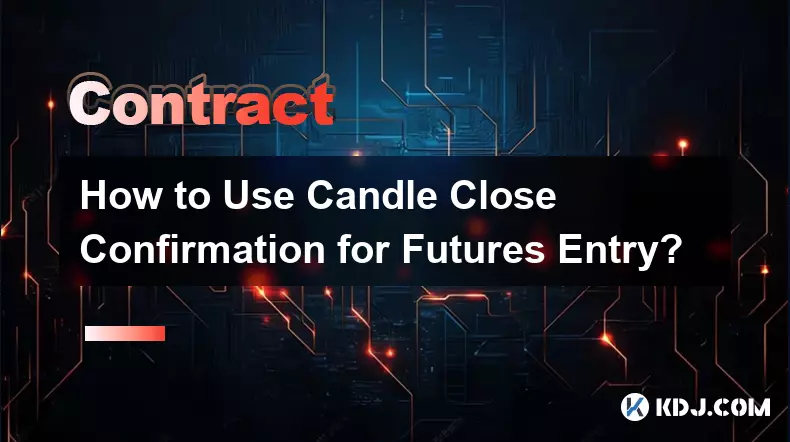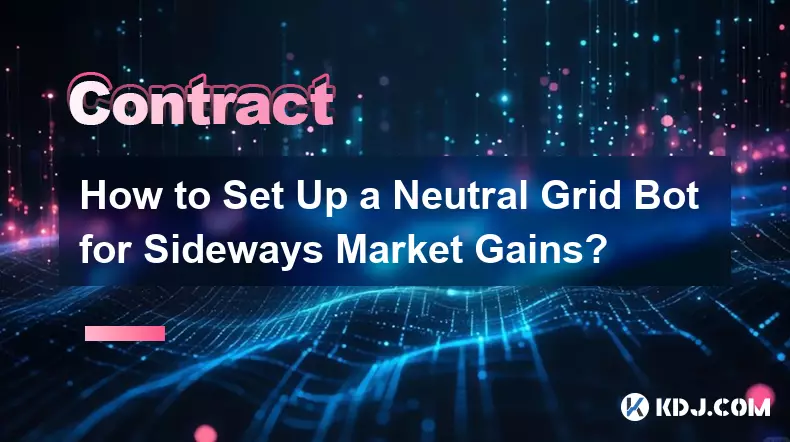-
 bitcoin
bitcoin $87959.907984 USD
1.34% -
 ethereum
ethereum $2920.497338 USD
3.04% -
 tether
tether $0.999775 USD
0.00% -
 xrp
xrp $2.237324 USD
8.12% -
 bnb
bnb $860.243768 USD
0.90% -
 solana
solana $138.089498 USD
5.43% -
 usd-coin
usd-coin $0.999807 USD
0.01% -
 tron
tron $0.272801 USD
-1.53% -
 dogecoin
dogecoin $0.150904 USD
2.96% -
 cardano
cardano $0.421635 USD
1.97% -
 hyperliquid
hyperliquid $32.152445 USD
2.23% -
 bitcoin-cash
bitcoin-cash $533.301069 USD
-1.94% -
 chainlink
chainlink $12.953417 USD
2.68% -
 unus-sed-leo
unus-sed-leo $9.535951 USD
0.73% -
 zcash
zcash $521.483386 USD
-2.87%
How to close OKX contract trading
Closing contract positions on OKX requires an understanding of trading basics, position determination, closing strategies, and risk management considerations.
Nov 23, 2024 at 05:59 am

How to Close OKX Contract Trading
Contract trading on OKX is an advanced trading form involving high risks and potential rewards. Understanding how to close positions and manage risks is essential. This comprehensive guide will provide a step-by-step approach to closing contract trades on OKX, exploring various strategies and considerations.
Step 1: Understand Contract Trading Basics
Before delving into closing positions, it's crucial to grasp the basics of contract trading. Contracts are financial instruments representing an agreement to buy or sell an underlying asset at a predetermined price on a specific date. Traders speculate on the future price movements of the underlying asset by entering into long (buy) or short (sell) contracts.
Step 2: Determine Your Position
Once you've initiated a trade, you establish a position. The type of position you hold (long or short) determines your strategy for closing it.
- Long Position: You've bought a contract, anticipating the underlying asset's price will rise.
- Short Position: You've sold a contract, believing the underlying asset's price will decline.
Step 3: Strategies for Closing Positions
There are various strategies to close contract positions on OKX, each with its own implications:
- Close All Position: Liquidate your entire position at the current market price. This strategy is recommended for quick exits or when substantial price movements are expected.
- Close Part Position: Reduce your position partially by closing a portion of the contracts. This approach allows you to manage risk by gradually exiting the trade while potentially retaining the opportunity for profit.
- Limit Order: Place a limit order to close your position at a specific price. This strategy ensures a certain level of control over the exit price, especially if you anticipate favorable market conditions.
- Stop Order: Use a stop order to close your position if the market price reaches a predefined threshold. This technique is beneficial for setting risk parameters or ensuring a swift exit when prices move against your favor.
Step 4: Selecting the Optimal Strategy
Choosing the appropriate closing strategy depends on several factors:
- Market Volatility: Highly volatile markets may warrant quick exits using "Close All Position," while less volatile markets allow for more tactical approaches like partial position closing or limit orders.
- Trade Duration: Short-term trades may favor "Close All Position" or partial position closing, while long-term trades can utilize limit or stop orders to optimize profits.
- Risk Tolerance: Conservative traders may prioritize minimizing losses with "Close All Position" or strict stop orders, while aggressive traders might prefer limit orders to capture potential gains.
Step 5: Executing the Closure
To execute a position closure on OKX:
- Navigate to the "Contracts" section of your OKX account.
- Select the contract you wish to close from the list of open positions.
- Choose your desired closing strategy ("Close All Position," "Close Part Position," "Limit Order," or "Stop Order").
- Specify the order parameters (e.g., number of contracts, limit price, stop price) as necessary.
- Confirm the closure once you are satisfied with the details.
Step 6: Monitor and Adjust
Once your position is closed, it's essential to monitor the market and make adjustments as needed. Volatility, market news, and other factors can impact prices, so staying informed is crucial. If necessary, modify your trading strategy or consider reopening positions based on updated market conditions.
Conclusion
Closing contract trades on OKX involves a thoughtful approach that considers various factors and strategies. Understanding the basics, determining your position, selecting the optimal closing strategy, executing the closure, and monitoring the market are essential aspects of effective contract trading management.
Disclaimer:info@kdj.com
The information provided is not trading advice. kdj.com does not assume any responsibility for any investments made based on the information provided in this article. Cryptocurrencies are highly volatile and it is highly recommended that you invest with caution after thorough research!
If you believe that the content used on this website infringes your copyright, please contact us immediately (info@kdj.com) and we will delete it promptly.
- NYC Reacts: Bitcoin Price Sees Sharp BTC Fall, Fueling Market Uncertainty
- 2026-02-06 13:20:01
- CME Coin Ignites Wall Street's Tokenized Finance Revolution: A New Era Dawns
- 2026-02-06 13:20:01
- Bitcoin Price, BTC Level, USD Now: Navigating Today's Volatile Crypto Landscape
- 2026-02-06 13:15:01
- Bitcoin's Big Apple Rollercoaster: Live Market Tumbles, USD Value in Flux
- 2026-02-06 13:15:01
- Iris Energy and the Bitcoin Mining Maze: A Q4 Revenue Shortfall Signals Industry Headwinds
- 2026-02-06 13:10:02
- Crypto's Chilly Reception: Bitcoin Plunge Pinches Iren's Pockets as AI Heats Up
- 2026-02-06 12:50:02
Related knowledge

How to Manage Emotions and "Revenge Trading" in Futures?
Feb 05,2026 at 12:19am
Understanding Emotional Triggers in Futures Markets1. Market volatility directly impacts psychological states, often amplifying fear or euphoria based...

How to Use Candle Close Confirmation for Futures Entry?
Feb 05,2026 at 04:20pm
Understanding Candle Close Confirmation1. A candle close confirmation occurs when the final price of a candlestick settles beyond a predefined level, ...

How to Master "Position Sizing" to Prevent Total Account Wipeout?
Feb 06,2026 at 12:00am
Market Volatility Patterns1. Bitcoin price swings often exceed 10% within a 24-hour window during high-liquidity events such as ETF approval announcem...

How to Analyze Market Sentiment Using the Fear and Greed Index?
Feb 05,2026 at 07:40am
Understanding the Fear and Greed Index1. The Fear and Greed Index is a composite metric designed to quantify prevailing emotional states among cryptoc...

How to Secure Your Futures Account with Anti-Phishing Codes?
Feb 05,2026 at 08:40pm
Understanding Anti-Phishing Codes in Crypto Futures Trading1. Anti-phishing codes are unique alphanumeric strings generated by futures exchanges to au...

How to Set Up a Neutral Grid Bot for Sideways Market Gains?
Feb 06,2026 at 10:00am
Understanding Neutral Grid Bot Mechanics1. A neutral grid bot operates without directional bias, placing buy and sell orders at predetermined price in...

How to Manage Emotions and "Revenge Trading" in Futures?
Feb 05,2026 at 12:19am
Understanding Emotional Triggers in Futures Markets1. Market volatility directly impacts psychological states, often amplifying fear or euphoria based...

How to Use Candle Close Confirmation for Futures Entry?
Feb 05,2026 at 04:20pm
Understanding Candle Close Confirmation1. A candle close confirmation occurs when the final price of a candlestick settles beyond a predefined level, ...

How to Master "Position Sizing" to Prevent Total Account Wipeout?
Feb 06,2026 at 12:00am
Market Volatility Patterns1. Bitcoin price swings often exceed 10% within a 24-hour window during high-liquidity events such as ETF approval announcem...

How to Analyze Market Sentiment Using the Fear and Greed Index?
Feb 05,2026 at 07:40am
Understanding the Fear and Greed Index1. The Fear and Greed Index is a composite metric designed to quantify prevailing emotional states among cryptoc...

How to Secure Your Futures Account with Anti-Phishing Codes?
Feb 05,2026 at 08:40pm
Understanding Anti-Phishing Codes in Crypto Futures Trading1. Anti-phishing codes are unique alphanumeric strings generated by futures exchanges to au...

How to Set Up a Neutral Grid Bot for Sideways Market Gains?
Feb 06,2026 at 10:00am
Understanding Neutral Grid Bot Mechanics1. A neutral grid bot operates without directional bias, placing buy and sell orders at predetermined price in...
See all articles










































































